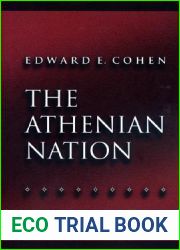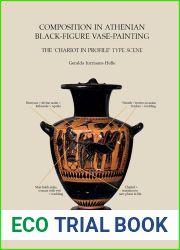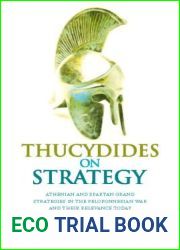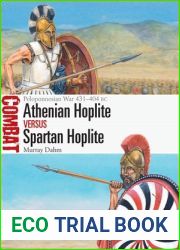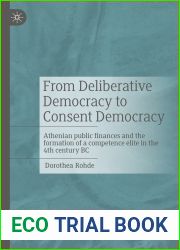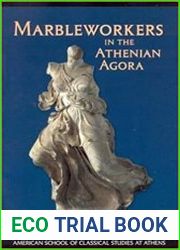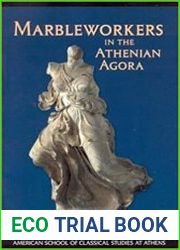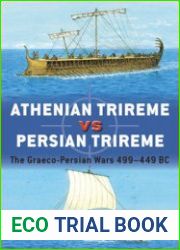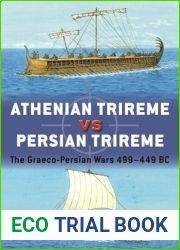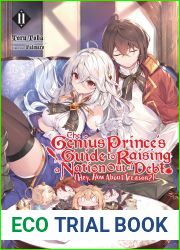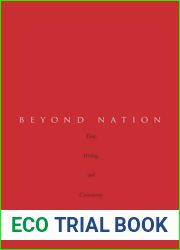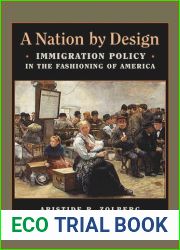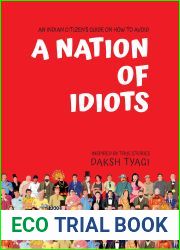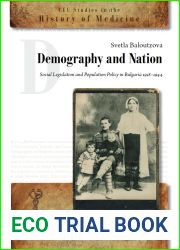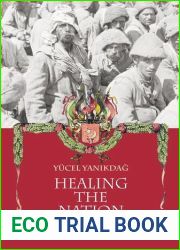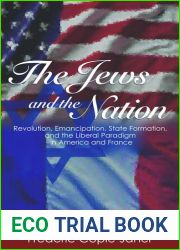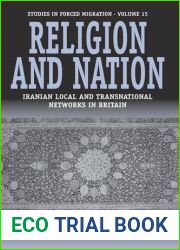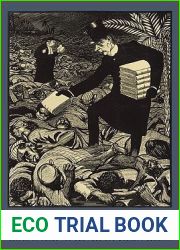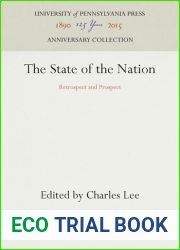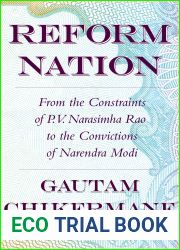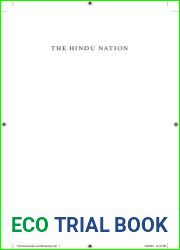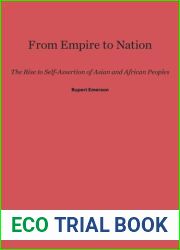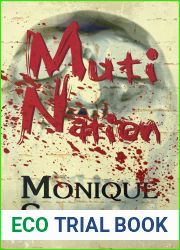
BOOKS - The Athenian Nation

The Athenian Nation
Author: Edward Cohen
Year: May 22, 2000
Format: PDF
File size: PDF 1.3 MB
Language: English

Year: May 22, 2000
Format: PDF
File size: PDF 1.3 MB
Language: English

Long detailed description of the plot: The Athenian Nation, written by Edward Cohen, challenges our understanding of ancient Athens, traditionally viewed as a polis, and presents a new perspective on the city's political, social, and cultural life. The book boldly recasts our knowledge of Athens, demonstrating that ancient sources referred to it not only as a polis but also as a nation and ethnos. This challenges the prevailing scholarship that equates Athens with its male citizen body. Cohen argues that the categories of citizen and non-citizen were more fluid than previously assumed, and some non-citizens held considerable power. He explores various topics such as the economic importance of businesswomen and wealthy slaves, the authority of enslaved public functionaries, the practical egalitarianism of erotic relations, and the broad involvement of all sectors of the population in significant religious and local activities. The book is based on fresh legal, economic, and archaeological evidence and analysis, which reveals the social complexity of Athens and the demographic and geographic factors that led to the creation of an imagined community with a mutually conceptualized identity. This unified economy and national myths are set within historical fabrication, providing a comprehensive understanding of the city's development. Cohen's research highlights the significance of economic, religious, sexual, and social dimensions in Athenian life, which were just as important as political and juridical considerations.
Подробное описание сюжета: «Афинская нация», написанная Эдвардом Коэном, бросает вызов нашему пониманию древних Афин, традиционно рассматриваемых как полис, и представляет новый взгляд на политическую, социальную и культурную жизнь города. Книга смело повторяет наши знания об Афинах, демонстрируя, что древние источники упоминали их не только как полис, но и как нацию и этнос. Это бросает вызов преобладающей стипендии, которая приравнивает Афины к их мужскому гражданскому телу. Коэн утверждает, что категории граждан и неграждан были более изменчивыми, чем предполагалось ранее, а некоторые неграждане обладали значительной властью. Он исследует различные темы, такие как экономическая важность деловых женщин и богатых рабов, авторитет порабощенных общественных функционеров, практический эгалитаризм эротических отношений и широкое вовлечение всех слоев населения в значительную религиозную и местную деятельность. Книга основана на свежих юридических, экономических и археологических данных и анализе, который раскрывает социальную сложность Афин и демографические и географические факторы, которые привели к созданию воображаемого сообщества с взаимно концептуализированной идентичностью. Эта единая экономика и национальные мифы задаются в рамках исторической фабрикации, обеспечивая всестороннее понимание развития города. Исследования Коэна подчеркивают значение экономических, религиозных, сексуальных и социальных аспектов в афинской жизни, которые были так же важны, как и политические и юридические соображения.
Description détaillée de l'histoire : « La Nation d'Athènes », écrite par Edward Cohen, remet en question notre compréhension des anciennes Athènes, traditionnellement considérées comme polis, et présente une nouvelle vision de la vie politique, sociale et culturelle de la ville. livre reprend courageusement notre connaissance d'Athènes, démontrant que les sources anciennes ne les mentionnaient pas seulement comme une police, mais comme une nation et une ethnie. Cela remet en question l'érudition dominante qui assimile Athènes à leur corps civil masculin. Cohen affirme que les catégories de citoyens et de non-citoyens étaient plus variables que prévu et que certains non-citoyens avaient un pouvoir considérable. Il explore divers sujets tels que l'importance économique des femmes d'affaires et des esclaves riches, l'autorité des fonctionnaires publics asservis, l'égalitarisme pratique des relations érotiques et la large participation de tous les segments de la population à d'importantes activités religieuses et locales. livre est basé sur de nouvelles données juridiques, économiques et archéologiques et une analyse qui révèle la complexité sociale d'Athènes et les facteurs démographiques et géographiques qui ont conduit à la création d'une communauté imaginaire avec une identité conceptualisée. Cette économie unifiée et les mythes nationaux sont établis dans le cadre de la fabrication historique, assurant une compréhension complète du développement de la ville. s recherches de Cohen soulignent l'importance des aspects économiques, religieux, sexuels et sociaux dans la vie d'Athènes, qui étaient aussi importants que les considérations politiques et juridiques.
Descripción detallada de la trama: «La nación ateniense», escrita por Edward Cohen, desafía nuestra comprensión de la antigua Atenas, tradicionalmente considerada como una polis, y presenta una nueva visión de la vida política, social y cultural de la ciudad. libro repite con audacia nuestro conocimiento de Atenas, demostrando que las fuentes antiguas las mencionaban no sólo como polis, sino también como nación y etnia. Esto desafía la beca predominante que equipara a Atenas con su cuerpo civil masculino. Cohen sostiene que las categorías de ciudadanos y no ciudadanos eran más variables de lo que se pensaba anteriormente, y algunos no ciudadanos tenían un poder considerable. Explora diversos temas como la importancia económica de las mujeres de negocios y los esclavos ricos, la autoridad de los funcionarios públicos esclavizados, el igualitarismo práctico de las relaciones eróticas y la amplia participación de todos los sectores de la población en actividades religiosas y locales significativas. libro se basa en datos y análisis jurídicos, económicos y arqueológicos frescos que revelan la complejidad social de Atenas y los factores demográficos y geográficos que llevaron a la creación de una comunidad imaginaria con una identidad mutuamente conceptualizada. Esta economía unificada y los mitos nacionales se establecen en el marco de la fabricación histórica, proporcionando una comprensión integral del desarrollo de la ciudad. La investigación de Cohen destaca la importancia de los aspectos económicos, religiosos, sexuales y sociales en la vida ateniense, que eran tan importantes como las consideraciones políticas y jurídicas.
Descrição detalhada da história de «A Nação de Atenas», escrita por Edward Cohen, desafia a nossa compreensão das antigas Atenas, tradicionalmente vista como uma apólice, e apresenta uma nova visão da vida política, social e cultural da cidade. O livro repete corajosamente o nosso conhecimento de Atenas, demonstrando que as fontes antigas não as mencionavam apenas como pólis, mas também como nação e etnia. Isso desafia a bolsa predominante, que equipara Atenas ao seu corpo civil masculino. Cohen afirma que as categorias de cidadãos e não cidadãos eram mais voláteis do que o previsto anteriormente, e alguns não-cidadãos tinham poder considerável. Ele explora vários temas, como a importância econômica das mulheres de negócios e dos escravos ricos, o prestígio dos agentes públicos escravizados, o igualitarismo prático das relações eróticas e o amplo envolvimento de todos os segmentos da população em atividades religiosas e locais significativas. O livro é baseado em dados e análises legais, econômicas e arqueológicas recentes que revelam a complexidade social de Atenas e os fatores demográficos e geográficos que levaram à criação de uma comunidade imaginária com uma identidade mutuamente conceituada. Esta economia unificada e os mitos nacionais são definidos como parte de uma fábrica histórica, garantindo uma compreensão plena do desenvolvimento da cidade. A pesquisa de Cohen enfatiza a importância dos aspectos econômicos, religiosos, sexuais e sociais na vida de Atenas, que eram tão importantes quanto considerações políticas e legais.
Descrizione dettagliata della storia «La nazione di Atene», scritta da Edward Cohen, sfida la nostra comprensione delle antiche Atene, tradizionalmente considerate come polizze, e rappresenta una nuova visione della vita politica, sociale e culturale della città. Il libro ripropone coraggiosamente la nostra conoscenza di Atene, dimostrando che le fonti antiche li hanno menzionati non solo come polizza, ma anche come nazione ed etnia. Questo sfida la borsa di studio prevalente che equipara Atene al loro corpo civile maschile. Cohen sostiene che le categorie di cittadini e di non cittadini erano più volatili di quanto precedentemente previsto, e che alcuni non cittadini avevano un potere significativo. Esplora diversi argomenti, come l'importanza economica delle donne d'affari e dei ricchi schiavi, la credibilità dei funzionari pubblici schiavizzati, l'egualitarismo pratico delle relazioni erotiche e il grande coinvolgimento di tutte le fasce della popolazione in notevoli attività religiose e locali. Il libro si basa su recenti dati legali, economici e archeologici e analisi che rivelano la complessità sociale di Atene e i fattori demografici e geografici che hanno portato alla creazione di una comunità immaginaria con un'identità concettuale reciproca. Questa unica economia e i miti nazionali sono definiti all'interno della fabbrica storica, garantendo una piena comprensione dello sviluppo della città. La ricerca di Cohen sottolinea l'importanza degli aspetti economici, religiosi, sessuali e sociali nella vita di Atene, che erano importanti quanto considerazioni politiche e legali.
Ausführliche Beschreibung der Handlung: „Die athenische Nation“, geschrieben von Edward Cohen, fordert unser Verständnis des antiken Athen heraus, das traditionell als Polis betrachtet wird, und präsentiert eine neue Perspektive auf das politische, soziale und kulturelle ben der Stadt. Das Buch wiederholt mutig unser Wissen über Athen und zeigt, dass alte Quellen sie nicht nur als Polis, sondern auch als Nation und Ethnie erwähnten. Das fordert das vorherrschende Stipendium heraus, das Athen mit ihrem männlichen Zivilkörper gleichsetzt. Cohen argumentiert, dass die Kategorien von Bürgern und Nicht-Bürgern variabler waren als bisher angenommen, und einige Nicht-Bürger hatten erhebliche Macht. Es untersucht verschiedene Themen wie die wirtschaftliche Bedeutung von Geschäftsfrauen und reichen Sklaven, die Autorität versklavter öffentlicher Funktionäre, den praktischen Egalitarismus erotischer Beziehungen und die breite Einbeziehung aller Bevölkerungsschichten in bedeutende religiöse und lokale Aktivitäten. Das Buch basiert auf frischen rechtlichen, wirtschaftlichen und archäologischen Daten und Analysen, die die soziale Komplexität Athens und die demografischen und geografischen Faktoren aufdecken, die zur Schaffung einer imaginären Gemeinschaft mit einer gegenseitig konzeptualisierten Identität geführt haben. Diese einheitliche Wirtschaft und nationale Mythen werden im Rahmen der historischen Fabrikation gesetzt und bieten ein umfassendes Verständnis der Entwicklung der Stadt. Cohens Forschung unterstreicht die Bedeutung wirtschaftlicher, religiöser, sexueller und sozialer Aspekte im athenischen ben, die ebenso wichtig waren wie politische und rechtliche Überlegungen.
''
Konu detayı: Edward Cohen tarafından yazılan "Atina Ulusu", geleneksel olarak bir polis olarak görülen antik Atina anlayışımıza meydan okuyor ve şehrin politik, sosyal ve kültürel yaşamına yeni bir bakış açısı getiriyor. Kitap, Atina hakkındaki bilgimizi cesurca tekrarlayarak, eski kaynakların onlardan sadece bir politika olarak değil, aynı zamanda bir ulus ve etnos olarak da bahsettiğini gösteriyor. Atina'yı erkek sivil bedeniyle eşitleyen mevcut burslara meydan okuyor. Cohen, vatandaşların ve vatandaş olmayanların kategorilerinin daha önce düşünülenden daha akışkan olduğunu ve bazı vatandaş olmayanların önemli bir güce sahip olduğunu savunuyor. İş kadınlarının ve zengin kölelerin ekonomik önemi, köleleştirilmiş kamu görevlilerinin otoritesi, erotik ilişkilerin pratik eşitlikçiliği ve nüfusun tüm kesimlerinin önemli dini ve yerel faaliyetlere yaygın katılımı gibi çeşitli konuları araştırıyor. Kitap, Atina'nın sosyal karmaşıklığını ve karşılıklı olarak kavramsallaştırılmış bir kimliğe sahip hayali bir topluluğun yaratılmasına yol açan demografik ve coğrafi faktörleri ortaya çıkaran yeni yasal, ekonomik ve arkeolojik kanıtlara ve analizlere dayanmaktadır. Bu birleşik ekonomi ve ulusal efsaneler, kentin gelişimi hakkında kapsamlı bir anlayış sağlayan tarihsel üretim çerçevesinde belirlenmiştir. Cohen'in araştırması, Atina yaşamında siyasi ve yasal hususlar kadar önemli olan ekonomik, dini, cinsel ve sosyal yönlerin önemini vurgulamaktadır.
تفاصيل الحبكة: «الأمة الأثينية»، التي كتبها إدوارد كوهين، تتحدى فهمنا لأثينا القديمة، التي يُنظر إليها تقليديًا على أنها بوليس، وتقدم منظورًا جديدًا للحياة السياسية والاجتماعية والثقافية للمدينة. يكرر الكتاب بجرأة معرفتنا بأثينا، مما يدل على أن المصادر القديمة ذكرتها ليس فقط كسياسة، ولكن أيضًا كأمة وإثنية. إنه يتحدى المنحة الدراسية السائدة التي تساوي أثينا بجسدها المدني الذكوري. يجادل كوهين بأن فئات المواطنين وغير المواطنين كانت أكثر مرونة مما كان يعتقد سابقًا، وأن بعض غير المواطنين يتمتعون بقوة كبيرة. وهو يستكشف مواضيع مختلفة مثل الأهمية الاقتصادية لسيدات الأعمال والعبيد الأثرياء، وسلطة الموظفين العموميين المستعبدين، والمساواة العملية للعلاقات المثيرة، والمشاركة الواسعة النطاق لجميع شرائح السكان في الأنشطة الدينية والمحلية الهامة. يعتمد الكتاب على أدلة وتحليلات قانونية واقتصادية وأثرية جديدة تكشف التعقيد الاجتماعي لأثينا والعوامل الديموغرافية والجغرافية التي أدت إلى إنشاء مجتمع متخيل بهوية متبادلة التصور. تم وضع هذا الاقتصاد الموحد والأساطير الوطنية في إطار التصنيع التاريخي، مما يوفر فهمًا شاملاً لتنمية المدينة. يسلط بحث كوهين الضوء على أهمية الجوانب الاقتصادية والدينية والجنسية والاجتماعية في الحياة الأثينية التي كانت لا تقل أهمية عن الاعتبارات السياسية والقانونية.







